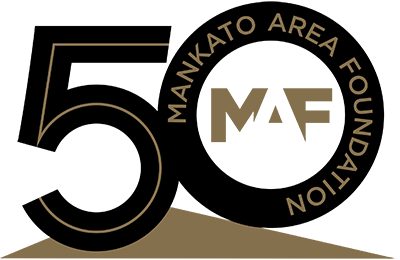 Welcome to the seventh installment of the Everyday Philanthropist. This month we hear from Erin E. Kragh, attorney at Fredrikson & Byron, P.A. about the importance of estate planning.
Welcome to the seventh installment of the Everyday Philanthropist. This month we hear from Erin E. Kragh, attorney at Fredrikson & Byron, P.A. about the importance of estate planning.
At MAF, we believe that anyone has the ability to share their community for good and experience the joy of giving. Please sit down, get comfortable, and enjoy this issue of the Everyday Philanthropist—we’re delighted to share it with you!
Erin E. Kragh is an attorney at Fredrikson & Byron, P.A. that practices in the area of Trusts & Estates. She develops personalized estate plans for individuals and families focused on their goals and priorities while implementing tax planning strategies.
Ms. Kragh was born and raised in Mankato and received her Juris Doctor from Rutgers Law School. She worked in New York City and Chicago prior to returning to Minnesota. Ms. Kragh serves on the Mankato Area Foundation Board of Directors and as a Board Member for the Estate Planners Council of Southern Minnesota.
October is home to National Estate Planning Awareness Week. Estate planning seems to be something that we know we should do but often push to the side. Let’s debunk a few myths about estate planning that can get in the way…
1. A will is the same thing as an estate plan.
An estate plan is broader than just a Last Will and Testament. Although a Will is an important piece of someone’s estate plan, an estate plan often includes trusts, beneficiary designations, business succession discussions, charitable giving, wealth transfers, and planning for the possibility that illness, injury, or memory issues may impact a person’s ability to handle their own financial and healthcare decisions in the future.
2. Estate planning is only for the rich.
There is sometimes a misconception that estate planning is only necessary for individuals or couples with substantial wealth. To the contrary, individuals and families of both modest and significant means benefit from having an estate plan in place that communicates their wishes and directs their assets in the event that they are no longer able to do so, due to illness, injury, or death.
In fact, young families are sometimes the ones that could benefit greatly from an estate plan. First, by providing clear direction about who should care for minor children and also ensuring that any assets passing down to children are distributed at appropriate ages (rather than having large lump sum payments being made during very young adulthood).
3. Estate planning is too complicated.
While the process may feel overwhelming, it usually starts with a simple conversation. Your estate planning attorney should generally begin by just asking questions to learn about you, your family, and your assets. The attorney will help identify what you want and will offer possible options. In fact, if someone is concerned about complexity, they may ask their attorney to work and coordinate directly with their accountant and financial advisor.
4. We did our will several years ago and have no need to further plan.
This may really depend. Most people’s lives are not static. Their finances are not static. So, their estate plan, which should be responsive to their personal circumstances may need to be tweaked, or at least reviewed, as life events occur. Some common events that may lead to estate plan changes are the receipt of an inheritance, marriage, divorce, death, minor children reaching adulthood, and major purchases (especially real property in other states).
Moreover, the simple passage of time may change a person’s goals and desires. If an estate plan was made when a child was just starting college and now that child is in the workforce, married, and responsible, a parent may no longer agree with the decisions that she or he made about age-specific (delayed) distributions to that child. Lastly, changes in the law is an additional factor that people do not consider (or may not even perceive).
How can philanthropy be incorporated into estate planning?
Philanthropy is a common topic during estate planning meetings, including whether to make gifts during life, at death, or (sometimes) both. Many individuals and families may have already considered an amount to give, but just as critical is the purpose behind the gift.
For example, does the donor want to make a charitable gift because of a strong personal tie to a particular nonprofit? Or, is he or she more interested in addressing a community need? Alternatively, is legacy and fostering philanthropy in younger generations the primary goal?
The course of action is typically shaped by the underlying philanthropic goal. If an individual or couple wants to teach his or her children and grandchildren about the importance of giving, while also providing ongoing support for a particular charity, a donor advised fund (DAF) at Mankato Area Foundation may simultaneously achieve both desired outcomes.
A DAF can be established and funded during life or at death. If a DAF with Mankato Area Foundation is set-up during life, it may be an opportunity to involve family members in the giving process and even allow family members to be named as successor advisors to work with Mankato Area Foundation. This means that the financial gift to the DAF ensures an ongoing source of funds for a charitable cause while creating a philanthropic opportunity for the next generation(s).
What’s your favorite gift or initiative at MAF?
My favorite initiative at Mankato Area Foundation is the Women’s Giving Circle. The Women’s Giving Circle focuses the collective giving power of hundreds of area women to increase the community impact of each woman’s gift. The Women’s Giving Circle also fosters relationships between its members, and between its members and local nonprofits and programs to build a philanthropic network aimed at supporting the greater Mankato community.
